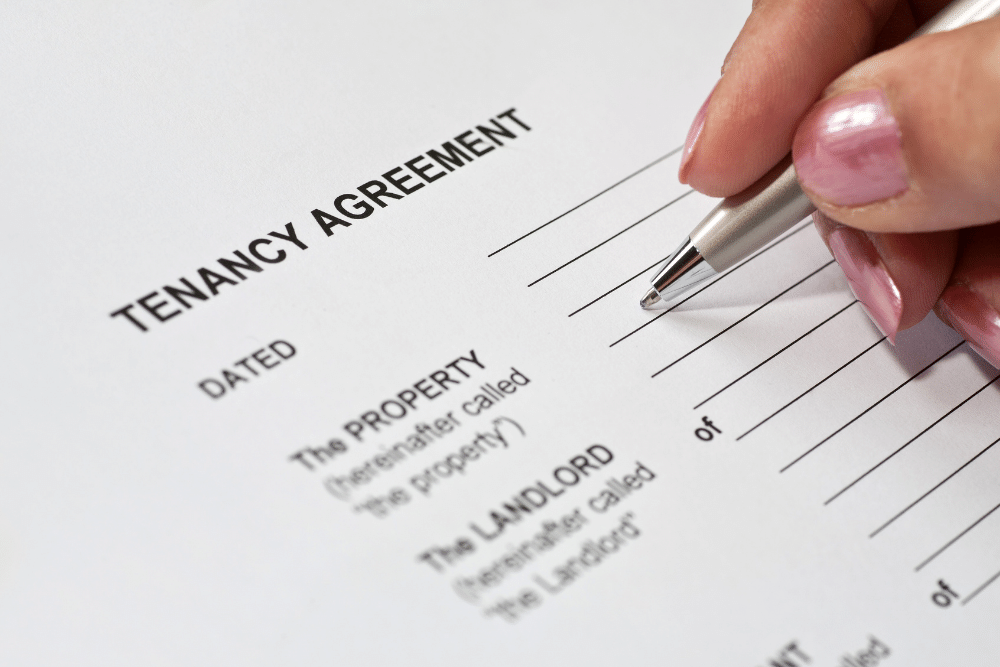Extending Your Tenancy – Everything You Need To Know as a Tenant
Your tenancy contract is coming to an end. You’d like to extend your contract, but what could happen next? Once your fixed term has ended, there are three avenues you can go down.
Tenants Contents Insurance from just £3.12
- ✓ Covered up to £30,000
- ✓ Flexible monthly policies
- ✓ No hidden fees
The first and rather undesirable option is that your landlord serves you a written notice. It currently requires 6 months’ notice as a result of the covid-19 pandemic, but under standard procedure is set at 2 months.
If, however, the landlord is happy for you to remain as a tenant at the property, you will have the option of either going into a periodic tenancy, which is also known as a rolling lease, or enter into another fixed term tenancy.
The choice of tenancy will vary on an individual basis and be subject to your personal preference, where a periodic tenancy offers you more flexibility, while a fixed term tenancy will offer security to the tenant.
When do I have to decide what happens after my tenancy?

Regardless of your choice, unless your landlord serves sufficient notice for you to vacate the premises of their property, your tenancy does not end automatically. In ways similar to the landlord, you as the tenant will have to give sufficient notice of your departure. If not, you will most often enter into a rolling lease and be bound by it until you serve sufficient notice, and the term of your notice to the end of tenancy expires.
What is a rolling lease or a periodic tenancy?
Moving into a rolling lease or periodic tenancy means that the tenancy will now renew on a monthly basis. As a tenant under a periodic lease, you are not entirely secure as there is a lack of certainty and clarity with regard to the duration of your stay, and both the tenant and the landlord have the capability of terminating the tenancy, provided that the appropriate notice period is given.
On a periodic tenancy, the cost of rent for your tenancy cannot change, and the landlord will have to draw up a new fixed term contract that you are not obliged to enter, unless you want to. The original tenancy contract will always include details of what happens at the end of your fixed term tenancy, including the rental charge for the renewal period. This will more often than not remain the same, however if the original tenancy agreement’s terms list an increase in fees for the property upon the start of a rolling lease, you as the tenant will be bound by that.

More often than not however, upon entering a rolling lease, you will not be subject to an increase in rent, as it often is in the interest of the landlord to retain good tenants. Additionally, the cost of finding a new landlord, especially given the unstable and uncertain times that we find ourselves in today, can be very costly, not only on the basis of advertising your property, but also on the lost out rent during the void period, which can go on for months.
Extending your original fixed-term tenancy
Alternatively, once your original fixed term tenancy has come to an end, you could be given the opportunity to formally extend your tenancy by signing a new fixed term tenancy agreement.
Usually, the terms of the new tenancy term will bear significant resemblance, if not be identical, to the original agreement. If you are looking for an alteration to the terms, be sure to bring that up with the landlord so as to include it in the contract. It could be the case that in your original fixed term tenancy, there was no option to enter into a periodic tenancy, in which case if you are in fact looking to extend your tenancy, then you have no choice but to sign a new tenancy agreement.
The obvious benefit of extending your tenancy by means of a fixed term is security and certainty regarding your tenure of the property as tenant.
What about rent increases?
If you do extend your tenancy in the form of a fixed term, your landlord has the option of increasing your rent. The increase in rent will naturally be discussed between the tenant and landlord, and will usually be subject to negotiation, where the landlord will have to bring forward a coherent argument and evidence for the increase in the cost of rent.
So there you have it -there’s a few different options as your contract comes to an end. Keeping in touch with your landlord to discuss options as your tenancy comes to an end will help ensure you both get a conclusion to the tenancy that you’re happy with.